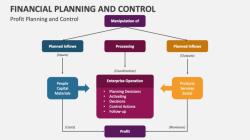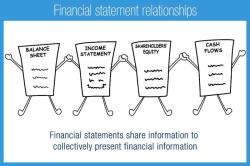Why there are 3 credit bureaus?
There are three major credit bureaus in the United States—Equifax, Experian, and TransUnion—due to historical developments and the need for competition and redundancy in the credit reporting industry. Here are the main reasons why there are three credit bureaus:
Historical Development:The credit reporting system in the United States has a long history dating back to the 19th century. Over time, various credit reporting agencies emerged to collect and maintain credit information on consumers and businesses. These agencies operated independently, often focusing on specific geographic regions or industries.
Competition:Competition among credit bureaus is essential for maintaining accuracy and fairness in credit reporting. Having multiple credit bureaus allows consumers and lenders to choose which bureau to use for credit reporting services. This competition incentivizes bureaus to improve their data accuracy, reporting practices, and customer service.
Redundancy and Verification:Having multiple credit bureaus serves as a redundancy measure. Lenders and creditors can report consumer credit information to more than one bureau, which helps verify the accuracy of the data. If an error or discrepancy arises in one bureau's report, lenders and consumers can refer to reports from the other two bureaus to confirm or correct the information.
Regional Focus:Historically, some credit bureaus had a regional focus, serving specific parts of the country more effectively. The existence of multiple bureaus with varying geographic coverage allowed lenders to access credit information relevant to their operations.
Consumer Choice:The presence of three major credit bureaus provides consumers with options. When applying for credit or disputing information on their credit reports, consumers can choose to work with a specific bureau that they find more convenient or responsive.
Regulatory Oversight:Federal and state regulations play a role in overseeing credit reporting agencies, including ensuring that they comply with laws such as the Fair Credit Reporting Act (FCRA). Having multiple bureaus can help mitigate the risk of systemic issues and promote accountability.
Global Standards:The concept of multiple credit bureaus is not unique to the United States. Many countries around the world also have multiple credit reporting agencies to foster competition and enhance the reliability of credit information.
It's important to note that while there are three major credit bureaus in the United States, other smaller credit reporting agencies also exist, often specializing in niche markets or industries. Consumers have the right to access their credit reports from each of the major bureaus annually for free and can dispute inaccuracies they find. This system of multiple bureaus contributes to the overall integrity of the credit reporting industry and benefits both consumers and lenders.
The three major credit bureaus are Equifax, Experian, and TransUnion. They are private companies that collect and maintain credit information on consumers. This information is used by lenders and other creditors to make decisions about whether or not to extend credit to someone.
Why There Are 3 Credit Bureaus
There are a few reasons why there are three credit bureaus. One reason is to promote competition. When there are multiple bureaus, lenders have more choices and can get credit reports from different sources. This helps to ensure that lenders are making informed decisions about creditworthiness.
Another reason for the three credit bureaus is to protect consumer privacy. If there was only one credit bureau, it would have a lot of power over consumers' financial lives. By having three bureaus, consumers have more control over their credit information. They can request their credit reports from all three bureaus and dispute any inaccurate information.
The Trio of Credit Bureaus: Their Roles and Differences
The three credit bureaus collect information from a variety of sources, including lenders, creditors, and public records. They use this information to create credit reports for each consumer. Credit reports contain information about a consumer's credit history, such as their credit accounts, payment history, and any outstanding debts.
The three credit bureaus also calculate credit scores for consumers. Credit scores are three-digit numbers that are used by lenders to assess a consumer's creditworthiness. The higher a consumer's credit score, the more likely they are to be approved for a loan or credit card at a favorable interest rate.
While the three credit bureaus collect similar types of information, they do have some differences. For example, they may use different formulas to calculate credit scores. This means that a consumer's credit score may vary slightly from one bureau to the next.
The Three Major Credit Bureaus: An Overview
Here is an overview of the three major credit bureaus:
Equifax
Equifax is the largest of the three credit bureaus. It was founded in 1899 and is headquartered in Atlanta, Georgia. Equifax collects information from over 10,000 sources and has over 800 million consumer credit files.
Experian
Experian is the second-largest credit bureau. It was founded in 1989 and is headquartered in Costa Mesa, California. Experian collects information from over 6,000 sources and has over 1 billion consumer credit files.
TransUnion
TransUnion is the third-largest credit bureau. It was founded in 1968 and is headquartered in Chicago, Illinois. TransUnion collects information from over 60,000 sources and has over 800 million consumer credit files.
Consumers can request a free copy of their credit report from each of the three credit bureaus once per year. They can do this by visiting the Annual Credit Report website at annualcreditreport.com.












